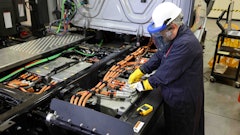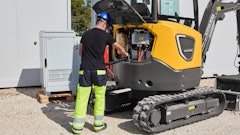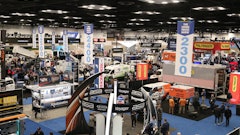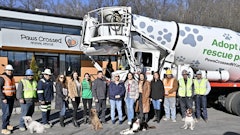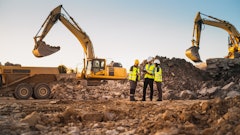The 5th Annual Growing Sustainable Communities Conference –Midwestern Region is a one-day educational opportunity for municipal professionals, elected officials and business leaders on October 3, 2012, preceded by three concurrent half-day workshops, two mobile tours and a networking reception on October 2.
Hosted by the City of Dubuque and Sustainable City Network, Inc., the conference will educate leaders and staff on the latest sustainability ideas, plans and best practices in four distinct programming tracks:
Water
- Integrated Water Planning
- Flood Protection
- Waste Water Treatment Plant Energy Improvements & Generation
- Best Water Management Practices for Building Owners & Operators
Buildings/Energy
- Sustainable vs. Conventional: A Matrix for Decision Making
- Best Energy Practices for Building Owners & Operators
- Beyond Waste: New Technologies for Converting Waste to Energy & Fuel
- Building a National Network for Local ReUse
Transportation
- Wayfinding Systems: Finding Your Way by Car, Bike or Foot
- Pedestrian Access Routes & ADA Guidelines
- Sustainable Asphalt Pavements
- Alternative Fuel Comparisons for Municipal and Commercial Fleets
Community Knowledge
- Engagement with True Market Solutions Circles
- Developing Green Teams
- Community Engagement Technology
- Partnering to Build Resiliency
Keynote speakers include Rocco Landesman, chairperson of the National Endowment for the Arts; Tracey Grose, research director at the Institute for the Future; Scot Wrighton, city manager of Lavasa, India; and Brian Rauch, vice president of engineering at John Deere, Construction & Forestry Division.
Grose will speak about the signs of resilience and growth in the clean energy economy. She'll talk on how the U.S. is shifting from the incumbent business-as-usual curve to the emergent curve toward a more resilient, resource-productive future. Pioneering public policy including energy efficiency standards, a renewables portfolio standard, a cap on greenhouse gas emissions and vehicle emissions standards are supporting the growth of new markets for products and services that help us achieve our environmental goals while also growing new economic opportunities. Recent original research results completed on behalf of Next 10, a California-based nonprofit, and others suggest that the clean energy economy is showing signs of resilience, and even growing, coming out of the recent economic downturn, according to Grose.
Wrighton will speak on Lavasa, the first and largest post-independence planned city in India, created in part to develop and implement a replicable model for an "operationally integrated, sustainably managed" city. It is a laboratory for putting sustainability into the daily practices, governance and life of a city, Wrighton says. He says Lavasa has learned that even though operational sustainability must be customized to a city’s unique environment, many standards and measurement tools for quantifying success can be generalized to cities everywhere. Wrighton is manager of this privately-funded urban development that is being planned for approximately 300,000 permanent residents, with facilities for about two million tourists per year and an employment base of about 97,000. The city is being developed following the principles of New Urbanism, an urban design concept that promotes walkable neighborhoods containing a range of housing and employment types.
Rauch's presentation will focus on the impacts of the growing global economy and population. The world population is growing in areas least able to support growth due to lack of infrastructure and the risk of pandemic disease, Rauch says. The developed economies are declining in population and rapidly aging. These dynamics, along with a global demand for more proteins in our diets, puts an incredible burden on agriculture and infrastructure to double the world’s food supply by 2050 without substantially increasing the amount of farmed land. The burden is on efficiency, infrastructure and political stability, he says.
View complete session descriptions and updates.
Registration
Registration is now open at http://gscdubuque.com. Discounted pricing is available through August 15. Admission to the one-day conference and luncheon on October 3 is $75, which includes admission to the networking reception from 5:30 to 8 p.m. October 2. Admission to the conference, luncheon, a pre-conference workshop and a mobile tour is $100. Seating is limited so early registration is encouraged. A limited number of hotel rooms have been reserved at the Grand Harbor Resort & Water Park, the Hotel Julien and the Holiday Inn for special conference rates starting at $89 per night, if booked prior to September 1.
The conference is sponsored by A.Y. McDonald, Cartegraph, Crescent Electric, Dittmer Recycling, Dubuque Bank & Trust, Eagle Point Solar, Gallagher Asphalt, HDR Engineering, Hoffman LLC, HR Green, John Deere, Premier Bank, Runde Auto Group, True North Companies, Unison Solutions, and Waste Management.
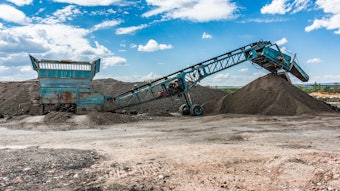
![Img 1707[56]](https://img.forconstructionpros.com/files/base/acbm/fcp/image/2023/04/IMG_1707_56_.6437076c97961.png?auto=format%2Ccompress&fit=crop&h=191&q=70&rect=0%2C462%2C1920%2C1080&w=340)

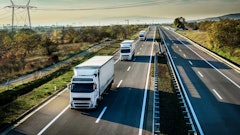


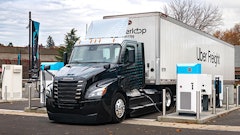
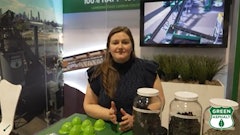

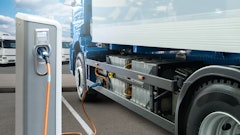
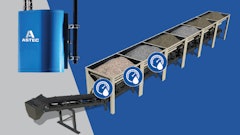


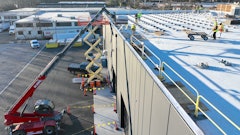
![Glp Porsche 072723 465 64ee42287c29e[1]](https://img.forconstructionpros.com/files/base/acbm/fcp/image/2024/03/GLP_PORSCHE_072723_465.64ee42287c29e_1_.65e88b8589b9c.png?auto=format%2Ccompress&fit=crop&h=135&q=70&rect=0%2C520%2C2250%2C1266&w=240)
